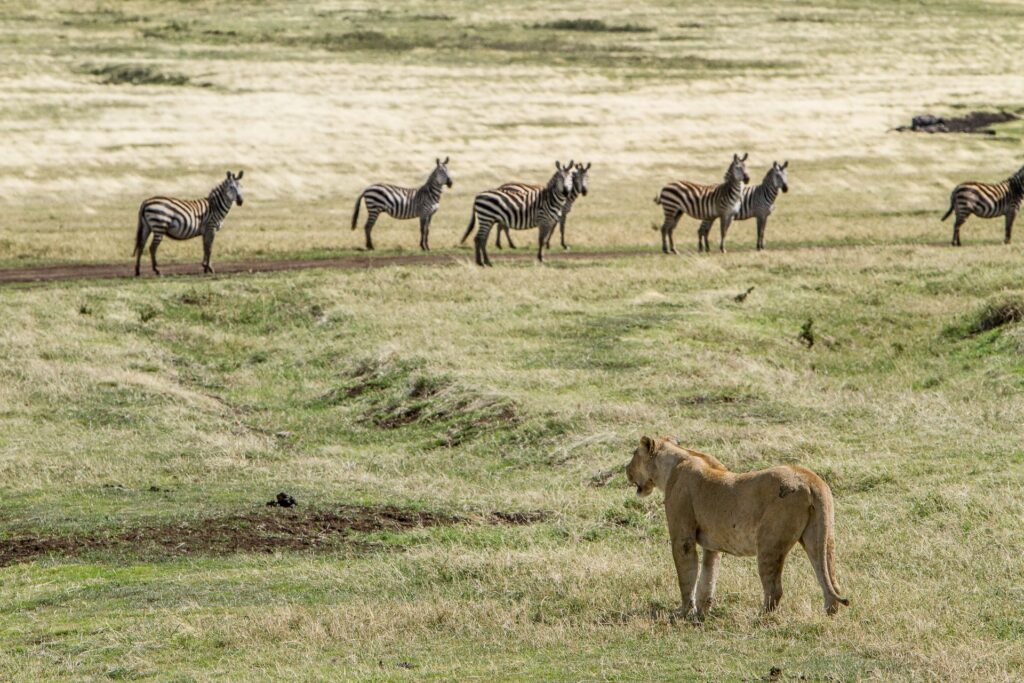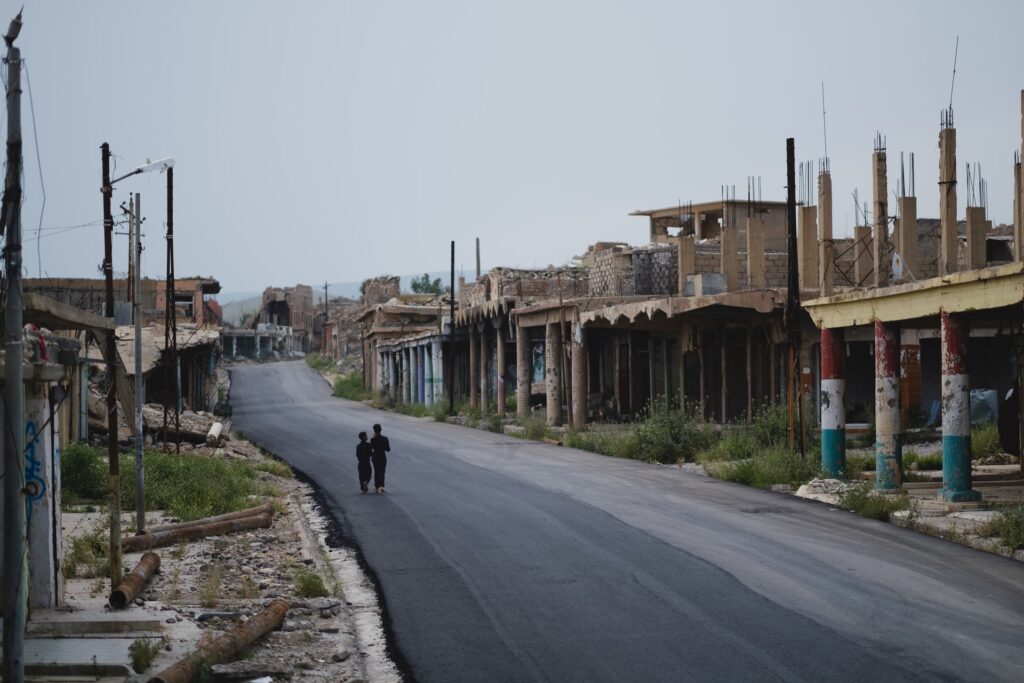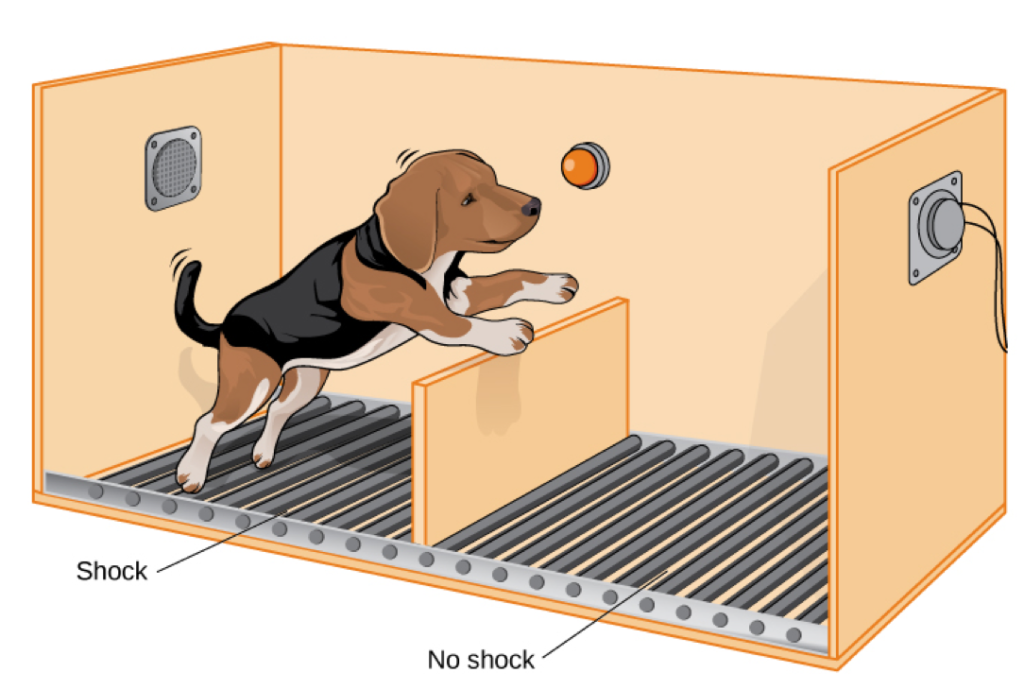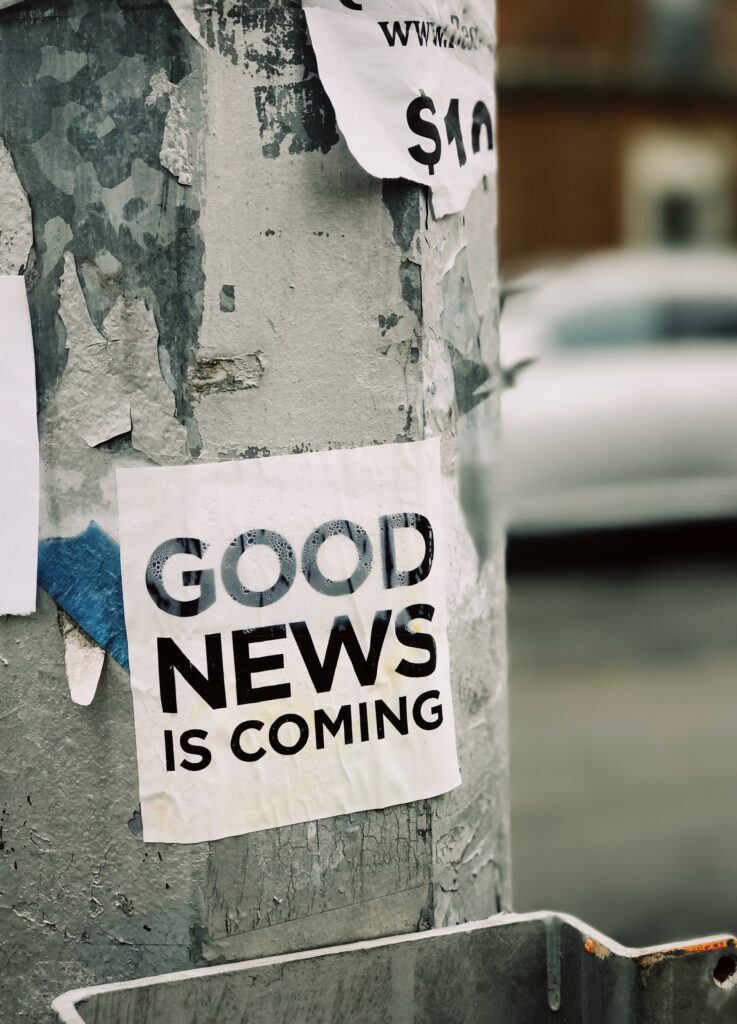Helplessness is closely related to our primitive response to an overwhelming threat–the freezing (or immobility) response.
Just like animals, we respond to threats by fighting, fleeing, or freezing. These responses are part of our defense system.
For animals, the freezing response is used as the last resort. It’s a time-limited response.
Unless conditioned, animals don’t stay in a state of immobility. They go back to fight or flight mode with amplified energy.
Humans work the same way.

All of us can experience temporary moments of helplessness (immobility).
The danger begins when we stay in that state.
We become victims, waiting to be victimized again and again.
If we experience painful and out of our control events for a certain time, we might stop trying to avoid pain. We give up, even when the possibility to stop the pain exists.
We call this phenomenon learned helplessness.
It’s not a response we are born with; we develop it through conditioning.
Learned helplessness: The experiments on dogs
While conducting experiments on dogs, Martin Seligman and Steven Maier stumbled onto what they later called “learned helplessness”.
The experiment had two phases.
Firstly, Seligman and Maier gathered a batch of dogs and divided them into three groups:
–Group One were placed in a harness for a period of time and were not administered any electrical shocks;
–Group Two were placed in the same harness but were administered electrical shocks that they could avoid by pressing a panel;
–Group Three were placed in the same harness and also administered electrical shocks, but were given no way to avoid them.
Secondly, Seligman and Maier placed each dog in a box with a low divider across the center. One side of the box produced an electrical shock; the other did not.
Dogs from Group One and Group Two were quick to figure out that they only needed to jump over the barrier to avoid the shocks. But the dogs from Group Three didn’t.
Based on their previous experience, these dogs concluded that there was nothing they could do to avoid being shocked.
They didn’t bother to try. Why? They didn’t know they had a choice. They had learned helplessness.
Humans learn helplessness the same way.
Once they experienced a situation where they had no choice (out of their control), they start believing they have no choice for all upcoming challenges.
What causes us to feel helpless?

In his book Learned Optimism, Seligman reports the three beliefs that create learned helplessness: permanence, pervasiveness, and personal.
A good way to understand these three beliefs is to compare the optimist and pessimist outlooks on failure.
We can summarize the optimist view on failure as:
“What happened was an unlucky situation (not personal), and really just a setback (not permanent) for this one particular goal (not pervasive)”.
1- Permanence: Optimists rarely, if ever, see a problem as permanent. They believe bad events are temporary. This is what allows them to bounce back quickly from failure.
2- Pervasiveness: Pessimists see failure in one area as failure in their whole life. Optimists don’t generalize a problem. They see failure as specific to one area.
3- Personal: The optimists say I failed. The pessimists say I’m a failure. This is a dangerous statement and the best way to sabotage ourselves.
It is critical to remember that, for every belief we hold, our brain will search for references to validate it, regardless of what it is.
If we’re holding negative beliefs, our brain will give us all the reasons to support them.
Finally, I want to add this.
I find that we don’t need to hold the 3 Ps at the same time to be helpless.
Adopting any of them can make the smallest challenge hard to overcome.
If a problem is permanent, why bother to fix it?
And if it’s pervasive, it becomes too much for one person to handle.
And if it’s personal, how can we be at the same time the source of the problem and the solution to it?
Islam: a tradition of helplessness?

The Mongols invasions where a time where Muslims fell into helplessness.
It doesn’t mean that the Islamic tradition has a Sunnah of helplessness.
Take the Makki period for example.
It was the hardest part of the life of the Companions.
That was the time to take the hits and keep moving forward anyway.
Compared to the Madani period where Muslims could defend themselves, the Makki one was much tougher.
But it is this period that built the character of the companions and set a solid foundation for Islam to spread later on.
Did the companions learn helplessness during the Makki phase? I don’t think so.
It is easy to confuse helplessness and acceptance.
We can deduce the difference between the two from the hadith of the Prophet (PBUH):
“Strive to do that which will benefit you and seek the help of Allah, and do not feel helpless. If anything befalls you, do not say ‘If only I had done (such and such), the such and such would have happened,’ rather say: ‘Allah has decreed and what He wills He does,’ for ‘if only’ opens the door to the work of the shaitan.” [Muslim]
Helplessness is about losing hope and stop trying to change our condition.
On the other hand, acceptance is about striving to do our best and relying on Allah for help.
Acceptance is a hard state to achieve. It requires us to keep going even if we don’t see any results.
But this is our belief.
During challenging times, we combine effort and hope in Allah.
There is a right time for every challenge to end, even if we don’t understand it in advance.
The companions wanted to conquer Mecca earlier. Allah decided otherwise. His wisdom encompasses everything.
An antidote to helplessness: Hope

Humankind was created weak. Hope compensates for our own weakness.
We hope, not because we are naïve. We hope because we are aware of our limitations and the consequences of our choices.
Terrible outcomes are always a possibility. Risk is in every choice we make.
Sometimes, we might wish to be like animals. Their instincts allowed them to have an automatic response to any situation.
But this is not possible. Our human condition is fragile.
So either we accept it and keep moving and hoping, or we don’t and fall into helplessness and paralysis.
Even if we’re lacking instincts, we still need tools to navigate this world.
When hope is part of our map, we can navigate the world in a better way.
Not only we can overcome challenges, but we can also transcend our nature and preserve our sanity.
The philosopher and psychologist Erich Fromm beautifully summarized our relation to hope when he wrote:
“Man, lacking the instinctual equipment of the animal, is not as well equipped for flight or for attack as animals are. He does not “know” infallibly, as the salmon knows where to return to the river in order to spawn its young and as many birds know where to go south in the winter and where to return in the summer. His decisions are not made for him by instinct. He has to make them. He is faced with alternatives and there is a risk of failure in every decision he makes. The price that man pays for consciousness is insecurity. He can stand his insecurity by being aware and accepting the human condition, and by the hope that he will not fail even though he has no guarantee for success. He has no certainty; the only certain prediction he can make is: “I shall die.”
Final Thoughts: When Allah’s help is coming?
The same Erich Fromm wrote:
“One cannot think in terms of percentages or probabilities as long as there is a real possibility — even a slight one — that life will prevail.”
Allah’s will is a not prisoner of percentages and probabilities.
With Allah, everything is possible.
His decree might follow the natural laws of the universe and take time. Or it might bypass all of them and happen in no time.
If we keep our hope in Him while doing the necessary effort, Allah’s help shall come.
Many passages in the Quran remind Muslims to stand strong in times of adversity and keep their hope in Allah.
“Do you think you will be admitted into Paradise without being tested like those before you? They were afflicted with suffering and adversity and were so violently shaken that even the Messenger and the believers with him cried out, “When will Allah’s help come?” Indeed, Allah’s help is always near.” [Quran 2:214]
“And do not weaken in pursuit of the enemy. If you are suffering, they too are suffering. But you can hope to receive from Allah what they can never hope for. And Allah is All-Knowing, All-Wise.” [Quran 4:104]
These two ayats show what Muslims share with the rest of the world: suffering. Everyone has to taste it at some point.
Where we might be different is in what we hope from Allah.
The nature of our hope makes helplessness inappropriate for us.
Article posted the 30 May 2021
Previous Articles
- Palestine: On The Importance of the Muslim Desire
- The Certainties of Muslims in Uncertain World
- Mongols Invasions: Some Forgotten Lessons to Today’s Muslims
- How to Enjoy Salat and Make it Meaningful
- How Muslims Have Responded to Western Society Dominance?
- The Future of Education: Better, Shorter, Cheaper?
- A Few Thoughts For Muslims
- The Blue Economy or How to Make Change Appealing
- Biomimicry: When Looking at the Creation Helps Solving Problems
- Scary AI and The Need For a Brain Optimization
- How the Prophet Transformed the Companions?
- Are Muslims Meant to Be Sleep Deprived?
- Muslims Judging Each Other: Why and How to Be Less Judgy
- Learning How to learn: The Foundation For Lifelong Learners
- 7 Lessons Lessons from Luqman that Will Make You Wise
- The Obstacles to Reading Books and How to Overcome them
- The One Habit


